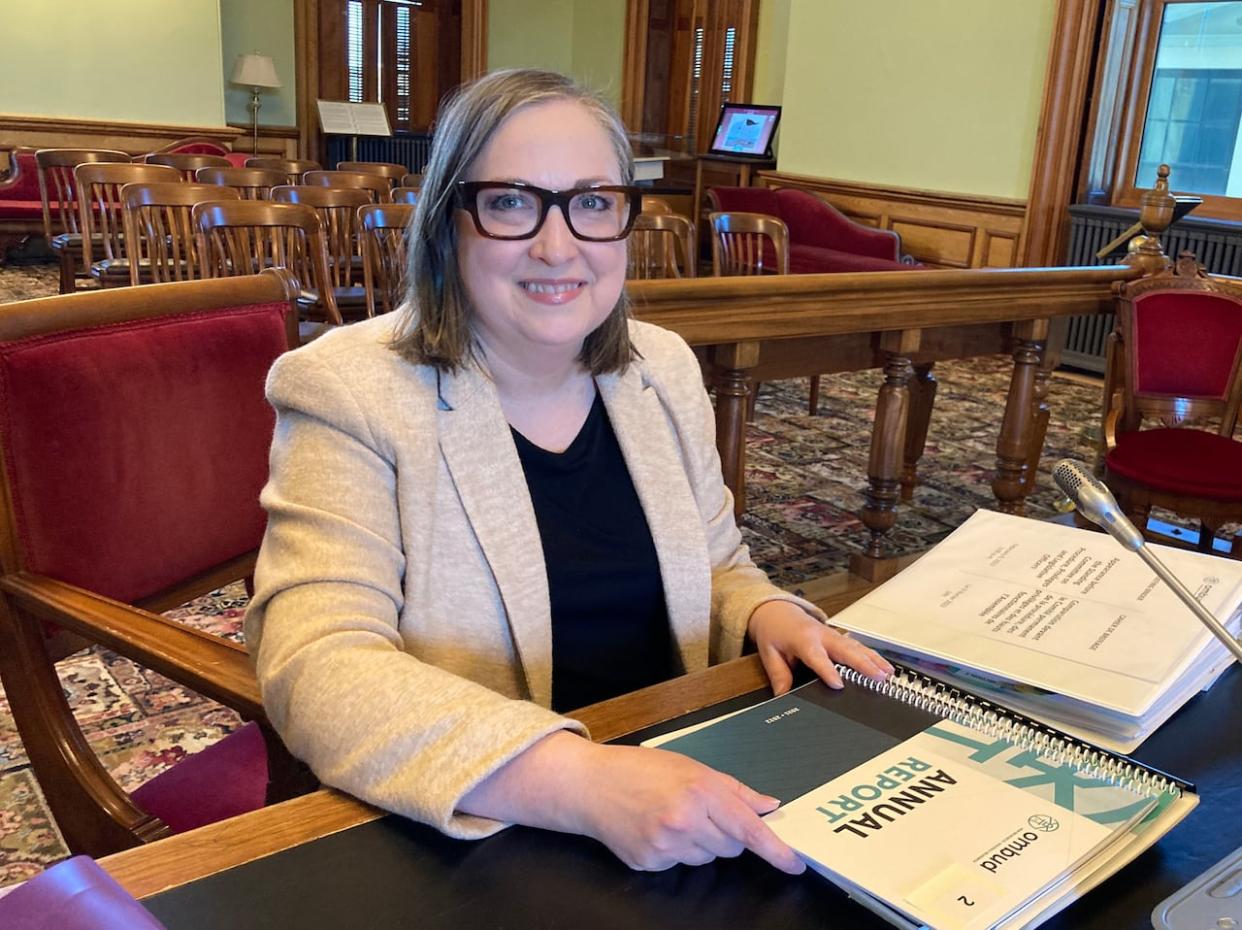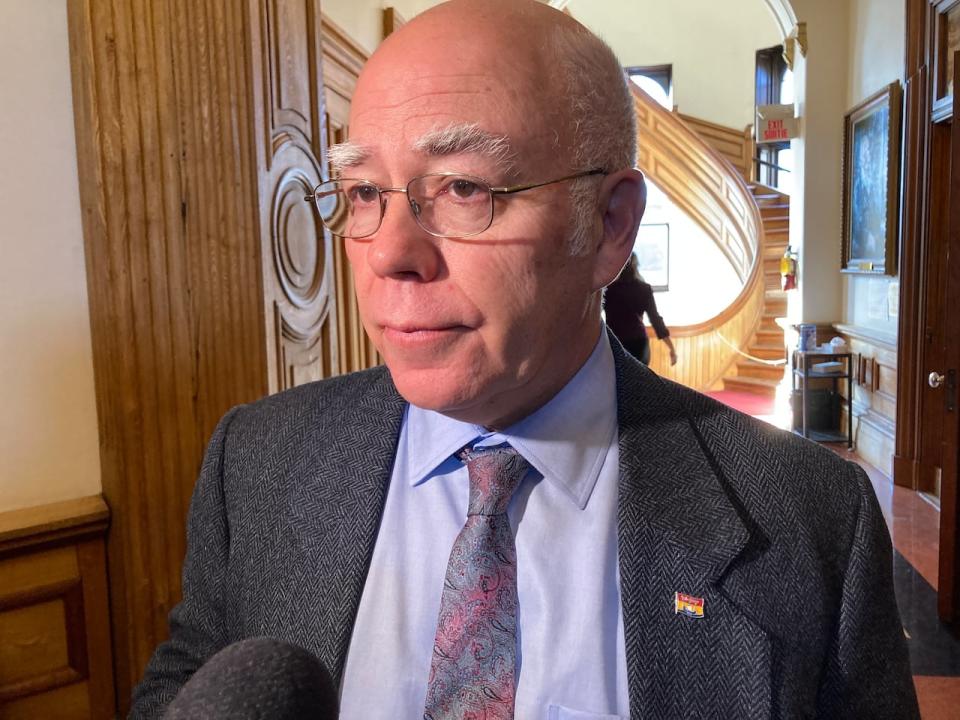Province's right-to-information act among Canada's weakest, Ombud says

New Brunswick's ombud says she agrees with a national survey that ranks the province's right-to-information act among the weakest in the country.
Marie-France Pelletier told a committee of MLAs on Thursday that she plans to make recommendations to the government on how the act can be improved to ensure the public has more access to information.
Provisions of the act are "unique to New Brunswick or are restrictive compared to what may exist in other jurisdictions," she said, and that creates a barrier to disclosure.
"If that's baked in to your legislation — that more information is going to be protected from disclosure — then that obviously drives the amount of disclosure that's going to be provided to applicants," she said.
Pelletier was responding to questions from Green Party Leader David Coon about a recent national survey by the Globe and Mail newspaper.
It found that in 2021, New Brunswick had the second-longest response time in the country at 72 days, despite a 30-day requirement in the act.
Only five per cent of requests were fulfilled without redactions, compared to a national average of 21 per cent.
Among the restrictive provisions, Pelletier said, is one that exempts the release of information "pertaining to legal affairs that relate to the performance of the duties and functions of the Office of the Attorney General."

Despite the province's right-to-information act, Green Party Leader David Coon says he finds it increasingly difficult to get information. (Jacques Poitras/CBC)
That broad exemption is unique to New Brunswick, she told the committee, and is broader than necessary.
Other provincial acts only exempt information covered by solicitor-client privilege — the providing of legal services by the attorney general to the rest of the government.
"It's unclear to me … why it was needed," she said of New Brunswick's broader provision, which recently obligated her to rule against recommending the release of information to someone who filed a complaint to her office.
"Because that is in the act, I had to find otherwise," she said.
Unlike some other provinces, the New Brunswick Ombud has no order-making power under the act and can only make recommendations.
The law also has no public-interest override that would let people argue for releasing exempt information because of its importance.
Province 'strict' about cabinet documents
The province also has "one of the strictest" restrictions on releasing cabinet documents, preventing a government from waiving the exemption even if it wanted to do, Pelletier said.
Previous amendments to the act gave the government 30 business days to respond to a request for information, as well as the power to grant itself an extension of 30 more business days, after which it can then apply to Pelletier's office for further extensions.
"If those changes were made with the notion that you would get more complete responses as a result, that might be a good tradeoff," Pelletier said.
"But the other part of the review by the Globe and Mail shows that that's not quite the case either. So we may not be in the best situation."
'Like asking a pig to fly'
Coon agreed with the ombud's criticisms, saying as a longtime user of the act, he has found it increasingly difficult to obtain information.
The ability of MLAs to get documents tabled in the legislature on request has also been curtailed, he said.
"Tabling a motion for information is just like asking a pig to fly," Coon said. "Forget it. It's not going to happen."
A recent provincial review suggested changes to the act, including some that could further restrict access, including narrowing the definition of "record" to cover only existing physical documents, not databases.
Pelletier said when the government is closer to introducing amendments to the act in the legislature, she will release "some sort of guidance document or observations around what could be some of the improvements" to the act.
She also said she's willing to use her legal authority to go to court to try to win access "on certain files," but she only wants to use that power "in the right situation."

